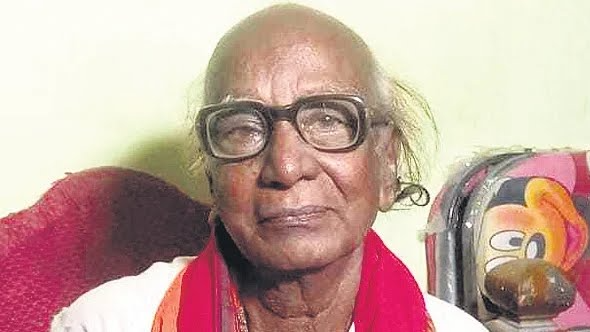

Sambalpur, August 20: Renowned Sambalpuri playwright and Padma Shri awardee Binod Pashayat passed away at the age of 91, marking the end of a legendary chapter in Odisha’s cultural history. Widely regarded as a towering figure in Sambalpuri musical theatre, Pashayat breathed his last on Tuesday morning following complications related to age and post-cancer illness. He was admitted to the district headquarters hospital, where doctors declared him dead.
Born on December 3, 1935, in Kusmel village of Balangir district, Pashayat moved to Sambalpur in 1953 in search of livelihood. Starting his career by running a small salon, he nurtured a deep passion for writing that would eventually shape his legacy. His powerful lyrics and gripping narratives brought Sambalpuri theatre to the forefront of regional art.
Pashayat was conferred with the Padma Shri—India’s fourth-highest civilian honour—for his contributions to literature and education. The award, presented to him by the President of India, was a landmark recognition not only for the playwright but also for Sambalpuri culture at large.
His celebrated compositions, including "Haaye Krishna, Haaye Krishna Boli Jaau Mor Jeevana," "Muin Nai Mare," and "Kie Janichh Kahi Dia Tare Maa Aksharara Mahatya," continue to resonate across Odisha, particularly in rural households where Sambalpuri traditions remain strong. His contributions also earned him recognition as an approved artist by All India Radio (Akashvani), a testament to his widespread appeal.
Following his demise, tributes poured in from all quarters. Union Minister Dharmendra Pradhan, former Minister Rohit Pujari, and several cultural and social organizations expressed deep sorrow and paid homage to his life and legacy.
Binod Pashayat’s passing marks not just the loss of an individual but the end of an era for Sambalpuri musical theatre—a genre he helped elevate to national prominence.